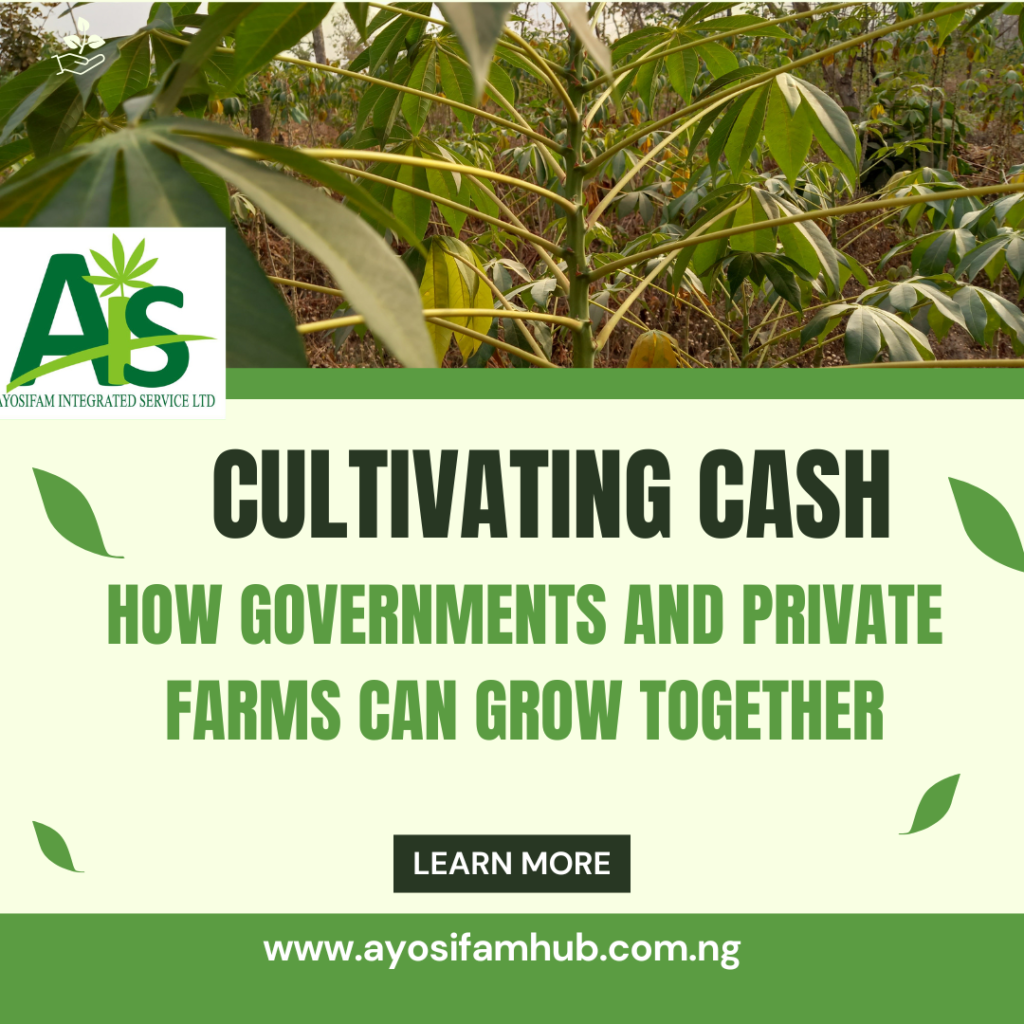Agriculture is vital, and crops like cassava and potatoes hold huge potential for feeding nations and boosting economies. But governments and private agriculture firms need to team up to unlock their value truly. It’s a win-win!
Why Partner Up?
Governments bring land, policy support, and infrastructure. Private firms bring capital, tech, and market access. When combined, we get:
Bigger Yields: Modern farming means more crops from the same land.
More Than Just Raw Produce: Private firms can invest in processing plants for things like cassava flour, potato chips, and even ethanol, creating higher-value products.
Wider Markets: Access to both local and international buyers.
More Jobs: From farmhands to factory workers.
New Tech: Modern farming methods and processing techniques shared.
How Governments Can Earn
When these partnerships thrive, governments can benefit financially in several ways:
1.Land Lease Agreements
Governments can lease suitable land to private firms. This means:
Fixed Payments: A steady income each year.
Revenue Sharing: The government gets a percentage of what the farm earns.
Joint Ventures: The government contributes land as its share and gets a piece of the profits.
2.Taxes and Fees
As these farms and businesses grow, the government naturally earns through various taxes:
Company Tax: From the private firm’s profits.
VAT: On processed goods like potato chips or cassava flour.
Export Duties: If products are sold internationally.
Licensing Fees: For permits and operations.
3.Infrastructure and Service Charges
If the government provides vital services, it can charge for them:
Irrigation Fees: For using government-built water systems.
Road Usage: For transporting goods on public roads.
Utilities: For water and electricity at processing plants.
Making it Work
For these partnerships to succeed, they need to be transparent, legally sound, and focused on shared goals. Governments must ensure fair practices, environmental protection, and adherence to agreements.
Teaming up with private agriculture firms, governments can turn the rich potential of cassava and potato farming into real economic gains, creating wealth for the state and opportunities for its people. It’s about growing more than just crops; it’s about growing prosperity!




